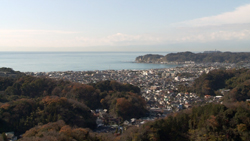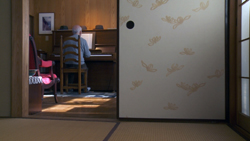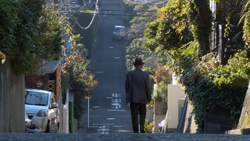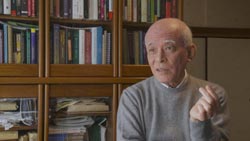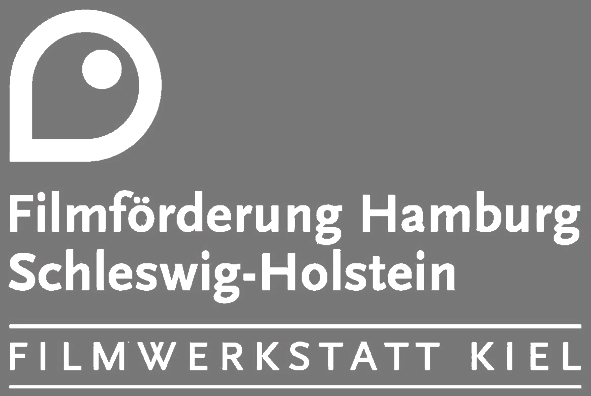|
A SHAPE OF TIME - the composer Jo Kondo
Daniel Krönke wrote on infomedia-sh.de:
"For the third time, Viola Rusche and Hauke Harder are dedicating a documentary portrait film to a composer of new music. After working on Alvin Lucier ("No Ideas but in Things", 2012) and Ernstalbrecht Stiebler ("Line by Line", 2014), "A Shape of Time" is dedicated to the Japanese composer Jo Kondo. The almost seventy year old is one of the most interesting contemporary composers of new music in Japan and worldwide.
New music? Avantgarde? Very few can claim to have access to this music, let alone have any idea about it. Rusche and Harder take this very skillfully into account: after an atmospheric picture of the port of Amsterdam, we find ourselves in a lecture by Jo Kondo in Amsterdam right at the beginning of the film. Together with the students, we listen to an example of composition and the subsequent explanations by the composer. Disarmingly honest, Kondo declares that his music is purely improvisation on the piano. No design, no master plan guide him - he "finds instead of inventing", as he says himself. Sometimes Kondo takes a day or two to find the next note and write it down. Kondo is a seeker. Just as he feels the notes of his music, Kondo also examines the philosophy of music itself and asks fundamental questions: What is the difference between pure sound (sound) and music? Does music start when a melody is formed? Kondo seems to continue this philosophical investigation in his compositions. The inclined listener is offered musical enjoyment and the intellectual challenge of dealing with the traditional concept of music.
Jo Kondo's music is difficult to describe. The influences on his improvisational composing are not clear to him. For example he doesn't rule out the ambient noise in the home of his youth as a source of inspiration. He feels reminded of this at his current Japanese residence in Kamakura. Harder's excellent sound recording while walking through the Zuisenji temple complex in Kamakura certainly suggests this conclusion. Kondo is still inspired today by experimental ambient recordings which he published in the early 1970s.
However, Kondo emphasizes that he refrains from expressivity in his compositions. No narrative or even emotional elements are included in it. In the interview, he carefully formulates the thesis which may be considered a basic principle of his work: The constant attempt to keep the balance between ambiguity and clarity.
Hauke Harder, himself a composer, experimental physicist, founder of the "Gesellschaft für Akustische Lebenshilfe" and active curator of new music, meets Jo Kondo on an intellectual and professional level. That may have been the key to accessing this extremely personable, relaxed, but always focused man. It gives Rusche and Harder access even in extremely precarious creative situations: when composing at home, during a delicate rehearsal with a women's choir or in a highly concentrated radio production in the Cologne broadcasting hall of the WDR. "A Shape of Time" not only brings us closer to the philosophy of an exceptional composer, but also shows us his everyday work as a lecturer in Amsterdam, as a professor in Tokyo and as a recording supervisor of his own music.
Harder and Rusche have structured the sequence of interview sequences and work observations excellently and always left room for film to contemplate what was said. "A Shape of Time" draws the parallelism between Jo Kondo and the Japanese director Yasujiro Ozu on the film level. Whether in the typical Ozu-establishing shots of Japanese landscapes and houses or the low camera angle ("tatami shot") which suggest a perspective from the Japanese sitting position. In Ozu's late films, traditional families have to face the beginning of modernity after the political end of the imperial period. Jo Kondo grew up in that post-war period when Japanese traditions were questioned by Western culture. Kondo was initially influenced by the classical European composers, later he sought the closeness of American avantgarde composers like John Cage during his studies. In his music, however, Kondo overcomes both the American avant-garde and Japanese tradition and establishes his own musical cosmos.
A scene that looks decorative at first might also come from a typical Ozu film and characterizes Jo Kondo almost casually as the seeker who is always on reception. In an exclusive sushi bar in Tokyo, two masters face each other: Maestro Kondo gropes to inquire about the subtle changes over the course of the seasons and their unpredictable effects on the fish which the sushi master virtuously breaks down and composes to create new flavors. A fitting picture for Kondo's creative approach."
Original article in German:
href="http://www.infomedia-sh.org/index.php?page=nl_nfl_16_shape_of_time
|
|
THE FILM 
DIRECTORS 
JO KONDO 
TRAILER 
CREDITS 
NEWS 
PRESS 
AWARD 
DVD BLU-RAY 
CONTACT 
|
|
